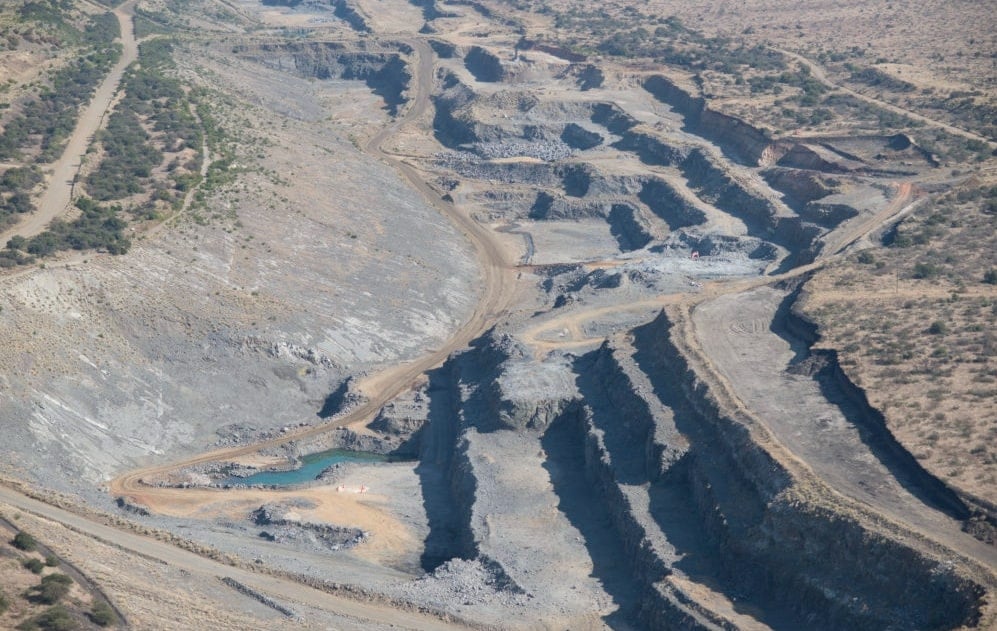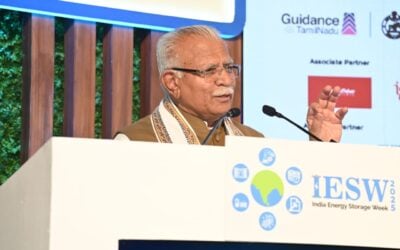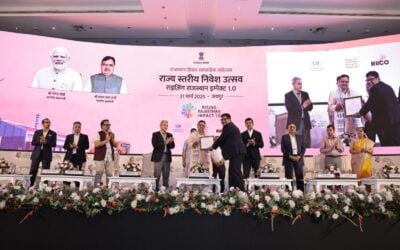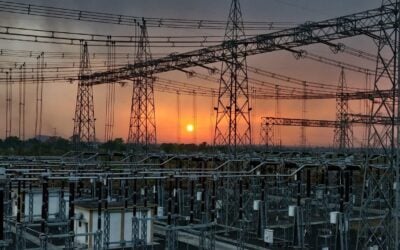
The downstream arm of vanadium producer Bushveld Minerals and other industry sources have responded to yesterday’s Energy-Storage.news article about flow battery technology’s suitability for a tender in South Africa.
In comments provided to Energy-Storage.news published yesterday, consultancies Clean Horizon and Harmattan Renewables said that the technical requirements of a recent 513MW/2GWh battery storage tender in South Africa would prevent flow batteries from participating. Specifically, they cited the round-trip efficiency (RTE) at the point of interconnection of 70%.
Enjoy 12 months of exclusive analysis
- Regular insight and analysis of the industry’s biggest developments
- In-depth interviews with the industry’s leading figures
- Annual digital subscription to the PV Tech Power journal
- Discounts on Solar Media’s portfolio of events, in-person and virtual
A spokesperson for Bushveld Energy, the downstream energy storage arm of Bushveld Minerals, provided a written response to Energy-Storage.news:
“This is incorrect. There are numerous flow battery technologies and companies – over 20 firms that produce vanadium-based flow batteries alone. Flow batteries range anywhere from 50-80% RTE at the grid connection,” they said.
“CellCube, a (vanadium refox flow battery company or VFRB) company in which we are a shareholder would be able to deliver flow batteries with an RTE over 70% for this tender. While some flow battery technologies and companies may not be able to meet this threshold, others can.”
A energy sector investor responded in a similar vein, and Bushveld Energy also pointed out that the consultancies’ comment that there was “not manufacturing capability in South Africa” for energy storage was untrue:
“For example, Bushveld Energy and the Industrial Development Corporation just finished construction of an 8 million litre vanadium electrolyte plant in East London, South Africa. Vanadium electrolyte alone contributes ~40% to a flow battery’s costs, and we expect a vanadium battery installed in South Africa to easily achieve ~60% in local content with existing domestic supply chains.”
In revised comments provided to Energy-Storage.news in response to various requests from industry participants ad observers, Clean Horizon and Harmattan Renewables said the RTE requirement “…will make it difficult for flow batteries to participate, and lithium-ion battery energy storage is likely to dominate. The fact that the RTE is measured at the grid connection will further affect project development decisions.”
They also acknowledged that the VRFB sector does have local manufacturing capabilities but that the domestic content requirements for the tender will likely need to be met by the balance of system (BOS).
Bushveld Energy said that the 513MW tender from the Department of Mineral Resources and Energy (DMRE) actually had some favourable conditions for flow battery technology. Specifically, the high number of cycling the battery systems would be required to do and the length of the contract.
“Requirement for two full, four-hour long charge and discharge cycles per day. This high cycling is perfect for the non-degradation of flow batteries and will increase augmentation costs significantly (not to mention future price risk) for anyone bidding lithium.”
“15-year supply agreement, which, while less than the 20-25 year lifetimes of flow batteries, exceeds the typical 10 year warrantees offered on lithium ion batteries.”
Bushveld Energy said that the company’s new plant in South Africa would be producing enough electrolyte to support a bid. Energy-Storage.news has asked the firm to confirm that CellCube would therefore consider bidding into the tender but the spokesperson declined to comment.
The projects range in size from 77MW/308MWh to 153MW/612MWh in required energy storage capacity, yet CellCube CEO Alexander Schoenfeldt recently told Energy-Storage.news that he estimated, outside of China, the global VRFB supply chain in 2021 had just 30MW of annualised production capacity. Although this is set to grow substantially in the comings years, it means VRFB deployments today rarely go above a few megawatts of power.
“Given that COD on the batteries in this tender is only expected in early 2026, this plant can make enough electrolyte to fulfil at least one and possibly two successful battery tenders (out of the five), should vanadium redox flow batteries win them. There is also more than enough vanadium oxide production in South Africa, as well, to supply feedstock to our plant for these installations,” the spokersperson said.






